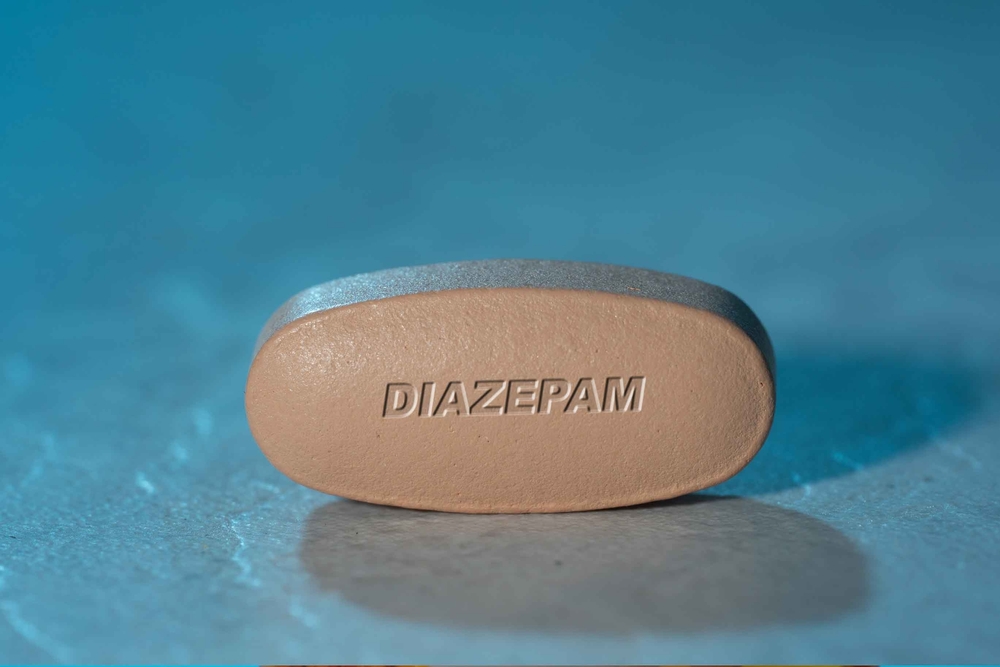Last Updated:
August 19th, 2025
Diazepam Rehab Treatment | What to Expect
You might have started diazepam with a prescription to get some rest, manage anxiety or get through a tough time in your life. Somewhere along the line, however, it can start to feel like you can’t even get through a single day without diazepam. Continuing to take diazepam when you know it’s harming you is the definition of addiction and it can have life-changing consequences. Diazepam addiction treatment gives you a safe place to talk honestly, understand what brought you here and slowly break your reliance on diazepam.

What is diazepam addiction treatment?
Diazepam addiction treatment is a step-by-step process to help you stop using safely and start rebuilding your life. It is split into three key parts to give you the right kind of help at each stage of recovery:
- Diazepam detox – This is a medically supported step-down from diazepam, which helps your body get used to being without it.
- Diazepam rehab – You will then undergo different forms of therapy to understand your diazepam use and find other ways to handle the feelings or problems that led you rely on it.
- Aftercare – After the first two stages, you will keep getting support so you don’t have to handle the ups and downs of recovery alone.
Here are some signs it might be time to get support:
- You feel on edge or unwell if you’re even slightly late taking diazepam
- You’ve bumped up your diazepam dose without medical advice
- You’ve hidden the truth about your diazepam use from the people who care about you
- You feel like you can’t get through the day without diazepam
- You’re zoning out, forgetting things or dozing off because of diazepam
- You want to stop taking diazepam but you feel powerless
Struggling with an addiction? If you are ready to seek help, reach out to us today, and a member of our compassionate team will help you find the best option for starting your recovery journey.
Phase one: Diazepam detox
Anyone who has tried to quit diazepam on their own knows it isn’t easy. Even with the best intentions, your body can react in unexpected ways and this often makes people relapse.
Detox is a short-term stage of treatment where you get proper help coming off diazepam. Instead of stopping suddenly, a doctor helps you lower your dose bit by bit so your body doesn’t panic. Your detox team will check on you around the clock and may give you medicine so you don’t get slammed with symptoms all at once.
The overall aim is to take the pressure off your body so you’re strong enough to deal with the next phase of treatment, where you work out why you got stuck on diazepam in the first place.
Diazepam withdrawal symptoms and detox timeline
Diazepam has a long half-life, meaning it stays in your system for longer. That can make withdrawal symptoms slower to start but they can still be intense and long-lasting if you come off too fast. Here is a general idea of what the diazepam detox timeline may look like:
- A creeping sense of anxiety
- Mood swings
- Insomnia
- Vivid dreams
- Muscle aches or tightness
- Mild nausea or loss of appetite
- Heightened anxiety
- Shaking
- Sweating and temperature sensitivity
- Trouble concentrating
- Digestive issues
- In rare cases, confusion or seizures if not tapered properly
- Emotional flatness
- Fatigue
- Complete lack of motivation
- Interrupted sleep
- Lingering anxiety and restlessness
- Fluctuating moods or ongoing anxiety
- Sleep problems that come and go
- Emotional numbness
- Moodiness
- A general sense of malaise because your body and brain are still adjusting
Phase two: Diazepam rehab
Once diazepam is out of your system, you will then look at what happened inside and around you that caused you to become addicted. A lot of people end up on diazepam because something in life just feels too heavy to carry. It may have been trauma, pressure, loneliness or anxiety.
Diazepam rehab helps you face those things with professional support rather than pills. It is your chance to talk about it all honestly, gain insights into issues you may not have even realised were affecting you and learn better ways to get through life’s hard moments.
What to expect from diazepam rehab
Rehab looks a little different for everyone but most good diazepam treatment centres offer a mix of therapies to help you recover in a well-rounded way. When choosing a programme, look out for these approaches because they have been proven to be the most effective:
- One-to-one counselling to dig into the roots of your diazepam use (usually only in private centres due to limited resources in NHS services)
- Group therapy for shared support, connection and fresh perspectives
- Cognitive behavioural therapy to help break old routines and practise better ones
- Family therapy providing structured conversations to help heal rifts and grow closer again
- Motivational interviewing for gentle goal-setting to remind you why you want this change
Holistic approaches like yoga, meditation, art and sound therapy
Phase three: Aftercare to help prevent a diazepam relapse
Aftercare is the phase where you take what you learned in treatment and start applying it to real life. It provides an ongoing support system, designed to help you avoid relapse and manage life’s challenges. Effective aftercare should include:
Seek diazepam addiction treatment today
You don’t have to wait until things get worse to take control of your life. Whether you’re just starting to worry about your diazepam use or have been stuck for a while, Addiction Helper can connect you with the right support. We are here to listen, guide you and help you take the first step when you are ready.
Our compassionate team are ready and available to take your call, and guide you towards lasting the lasting addiction recovery you deserve.
Frequently Asked Questions
(Click here to see works cited)
- UK Addiction Treatment Centres. “Valium (Diazepam) detox | Valium withdrawal symptoms.” UK Addiction Treatment Centres, 28 March 2025, https://www.ukat.co.uk/detox/drug/prescription/benzodiazepine/valium/. Accessed 11 June 2025.
- UK Rehab. “Diazepam Rehab | Diazepam Addiction Treatment Process.” UK Rehab, https://www.uk-rehab.com/prescription-drug-rehab/benzodiazepine/diazepam/. Accessed 11 June 2025.
- Pétursson, H. “The benzodiazepine withdrawal syndrome.” Addiction (Abingdon, England) vol. 89,11 (1994): 1455-9. doi:10.1111/j.1360-0443.1994.tb03743.x


